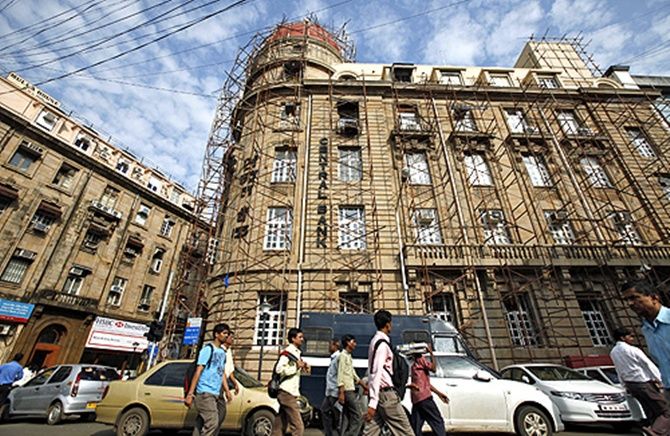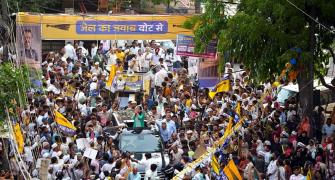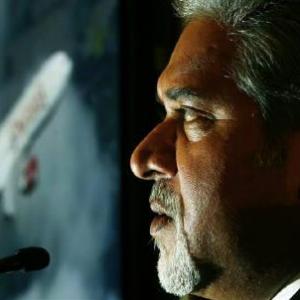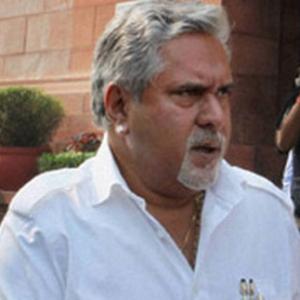While the CEO of a public sector bank earns an average of Rs 18 lakh per annum, his counterpart in the private sector earns an average of Rs 3.5 crore, in addition to the stock options worth a multiple of that, says Shyamal Majumdar.

If the response to Finance Minister Arun Jaitley's excellent idea of employee stock options (Esop) for public sector bank (PSB) employees was muted, the reason isn't difficult to figure out.
The present government announced in August last year that it would consider Esops for bank employees; seven months later, all that Jaitley said at the concluding media conference of Gyan Sangam was that his ministry was still "considering" such a move.
One hopes the period of consideration will end soon, as there is no reason why the top executives of PSBs should be denied this privilege.
The A K Khandelwal Committee had recommended this in 2010 as a measure of promoting ownership in employees as also retaining talent and had said this should be limited to the top 15 per cent of performers in the executive cadre including chairmen, managing directors and executive directors.
Jaitley should look at expanding the scope to the level of general managers as well.
At a time when the government is looking at bringing in top-notch talent to PSBs, implementation of Esops, a standard retention tool in private sector banks, should not be delayed.
Though some say Esops may not work in PSBs, as typically vesting of these will take at least three to four years, and top executives of PSBs move sooner than that, they agree this could bring in a new dimension to PSBs that have not experimented with this before.
Also, Esops could, in a limited way, help absorb the shocking disparity in the compensation levels of the heads of PSBs versus those of private banks.
For example, while the CEO of a PSB earns an average of Rs 18 lakh per annum, his counterpart in the private sector earns an average of Rs 3.5 crore, in addition to the stock options worth a multiple of that.
However, Esops alone would not be able to solve the larger human resource problems of PSBs - that of a gaping hole in the middle.
The reasons for the problem are many - from poor pay to the fallout of a 1990s' hiring freeze that left state-run banks with a dearth of senior managers.
Besides, the central bank has dubbed 2010-20 the "retirement decade".
One of the first steps needed is the removal of the practice of uniform financial incentives to all PSBs.
Since each bank has its own unique characteristics and business profile, a one-size-fits-all format irrespective of the size of the banks and their intrinsic problems, is an absurd policy.
The industry-wide wage settlement norms have been in place for almost 50 years now and need to change.
In any case, productivity of employees and profitability vary widely from one bank to the other and since the benchmark for an industry-wide pact is the paying capacity of the weakest of the banks, it is always unfair to the employees of profitable banks.
State Bank of India, the country's largest bank, has found a way out by doing lateral hires on contract for specialised jobs.
One would have thought this is the most obvious solution to bring in experience and specific skill sets. But look at the track record.
Lateral recruitments account for just five per cent of all the employments in PSBs; in comparison, more than half of the hiring in private sector banks comes through lateral recruitment.
The SBI is also trying to bring staff originally recruited by its subsidiaries, which offer higher salaries - a luxury most other PSBs do not have.
For them, the problem is more acute at the mid-level, as till scale 3, PSBs are quite competitive in terms of salaries. The problem occurs at scales 4 and 5.
The other problem the government has to tackle is to find a way around the bar on PSBs as far as campus recruitments are concerned.
The ban came into effect in 2013 after the Bombay High Court held that the Central Bank of India's recruitment policy, which allows campus recruitment/interview method for appointment of officers against permanent vacancies on a regular basis, was illegal and unconstitutional, as it "tramples the fundamental rights of qualified and eligible citizens to be considered for public posts".
The court also said the argument of liberalisation, autonomy or competition with the private sector was not sufficient for a PSB to have campus interviews.
This is like asking PSBs to fight in the marketplace with both hands tied firmly.










